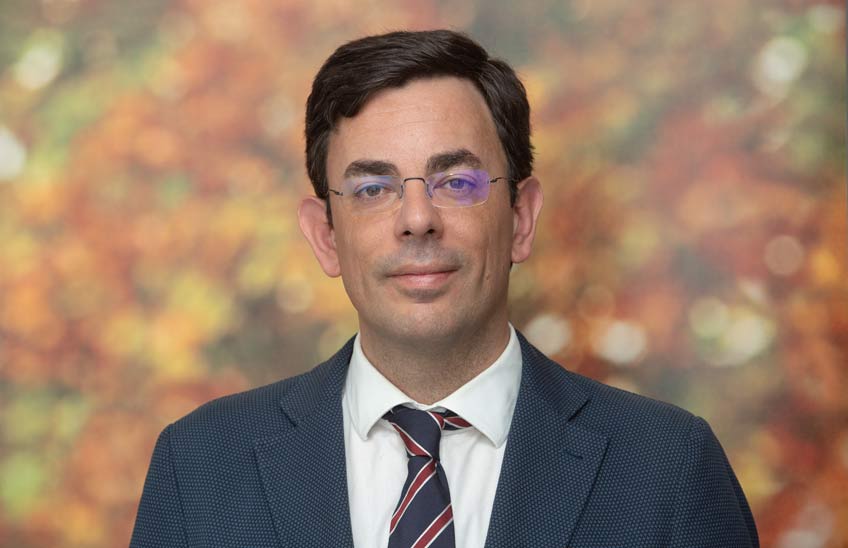"There are only two couple therapies whose efficacy is scientifically proven and less than 10 therapists certified in them in Spain."
A University research has demonstrated the effectiveness of emotion-focused couples therapy in the Hispanic context.

PhotoManuelCastells/Martiño Rodríguez González, psychologist and researcher manager of project E(f)FECTS (Emotionally Focused Couple Therapy in Spanish) of Institute for Culture and Society (ICS)
15 | 05 | 2024
There are only two couple therapies whose efficacy is scientifically proven and less than 10 therapists certified in them in Spain". This was stated by Martiño Rodríguez González, psychologist and researcher manager of project E (f)FECTS (Emotionally Focused Couple Therapy in Spanish) of the Institute for Culture and Society (ICS) of the University of Navarra.
essay This research is the first randomized clinical trial in emotionally focused therapy in Spanish-speaking countries. It is a therapy that had demonstrated its efficacy in the United States and Canada and has been brought to the Spanish-speaking world thanks to partnership of the University of Navarra and Brigham Young University.
The project, in which 68 couples from Spain, Mexico, Guatemala, Argentina and Costa Rica participated, has scientifically demonstrated that this emotion-focused therapy improves couple satisfaction, decreases the Degree of conflict and improves secure attachment. This improvement in the couple's relationship in turn influences, as has been shown by numerous research studies in psychology such as the Grant Study at Harvard University, the overall well-being of people. For example, by offering more stress management resources, it has positive impacts on psychological health, parenting and even work performance.
"The couple's relationship is the most important relationship for most adults and can be a buffer or co-regulator," added the expert. He has highlighted the importance of attachment in relationships, hence this therapy focuses on emotions. According to researcher, it allows us to know where we feel safe, recognized and loved and how we react when we do not feel this way in order to work on an emotional and affective level.
However, he regretted that there is a lack of training in couple therapy, which prevents psychologists and their patients "from having a criterion and from assuming that any training will do". Although there are many models, at the moment, "there are only two therapies that have been shown to have scientific evidence, however, it could be said that 98% of people are treated with other therapies because there are very few therapists trained in the two that work," he criticized. For this reason, he advocated improving the training of psychologists.
He assured that the first step to raise awareness is to carry out research to show the evidence with data and to open a discussion about them in the academic and university world. Afterwards, it is necessary to transfer this discussion to the professional world "so that clinicians become aware of the differences between therapies and can discover that there is a gap," he concluded.
The project e-E(f)FECTS, led by psychologist Martiño Rodríguez González, also seeks to discover the implications of conducting couples therapy virtually and its differences with face-to-face sessions. A project that arose as a result of the difficulties faced by therapists in the pandemic and is already developing various awareness-raising actions in the academic and clinical world.
